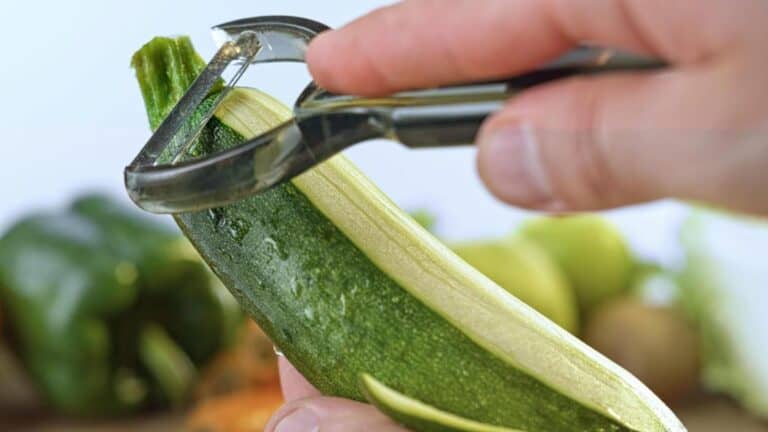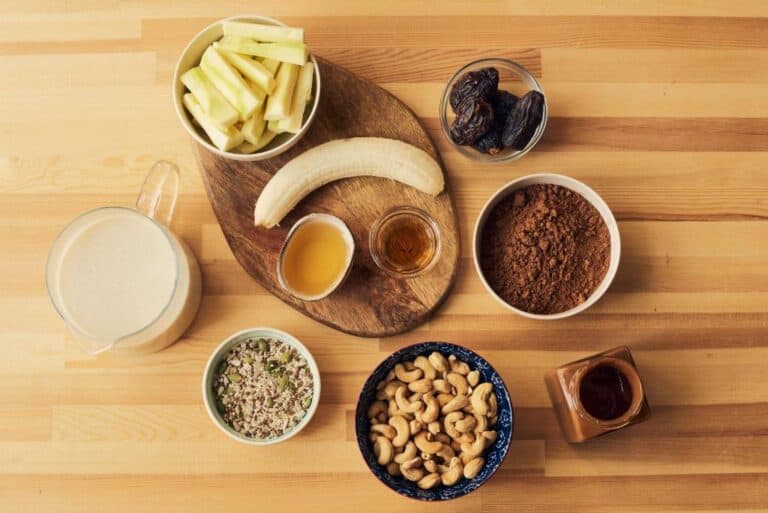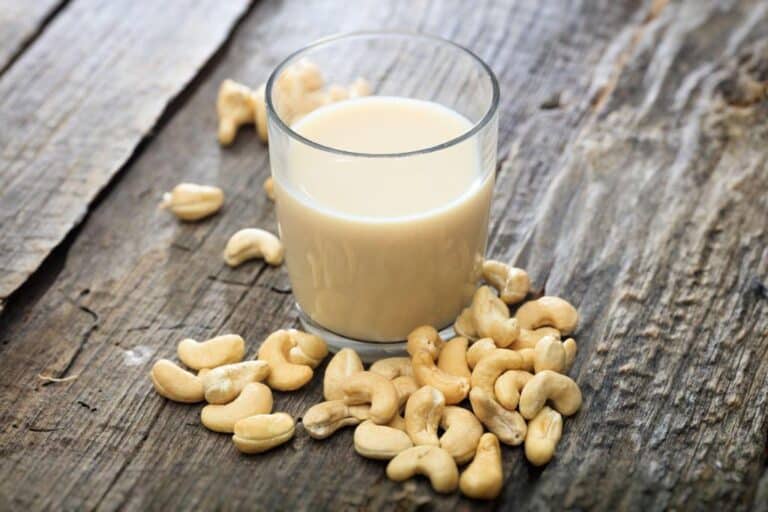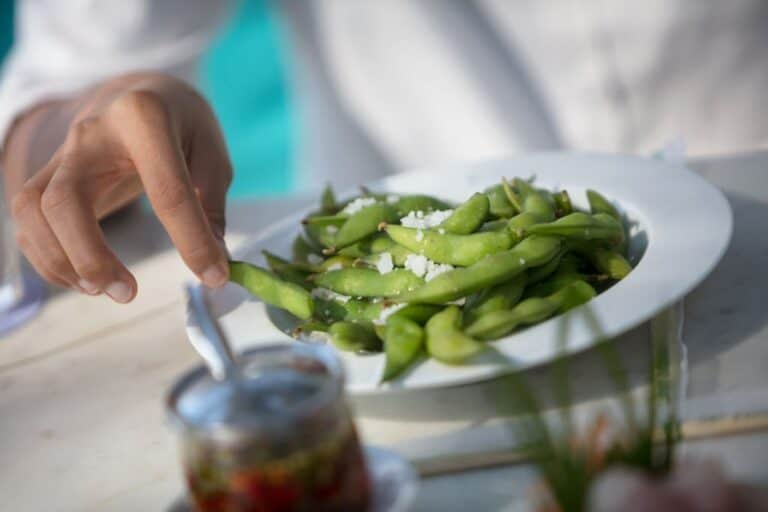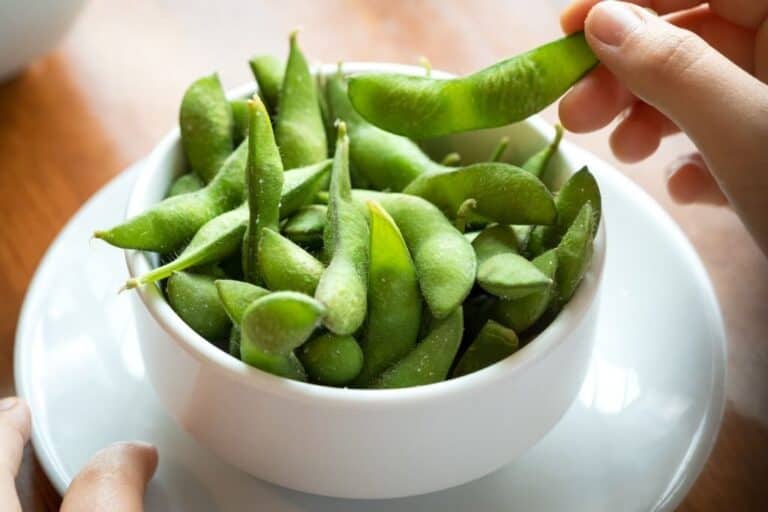Can You Eat Raw Cashews? Are Unroasted Cashews Nuts Bad For You?
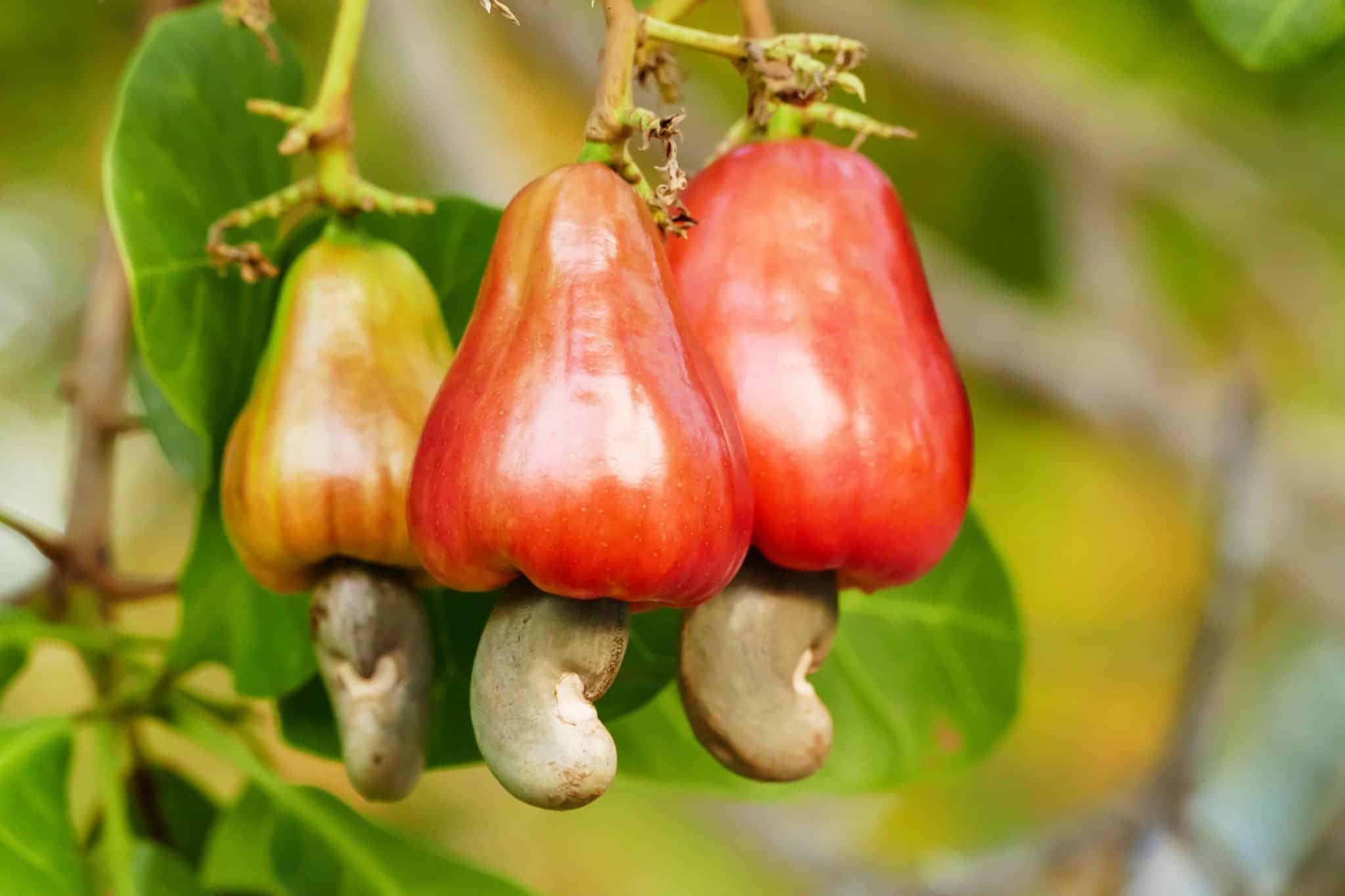
Cashew nuts are a common ingredient in Indian and Thai cuisine. They can be used in sweet or savory dishes and are often roasted or fried before being added to a dish. Cashews are also popular in desserts and as a snack food.
For starters, raw cashews are not technically nuts at all. They’re actually the seeds of a fruit called the cashew apple, which grows on trees in tropical climates like Brazil and India.
A raw cashew nut is a drupe that grows on the cashew tree. The cashew tree is native to Brazil, but the nuts are now grown in many tropical countries. The cashew nut is encased in a hard shell that contains a toxic substance. The shells are removed before the nuts are roasted or sold as raw cashews.
But what if we told you that cashews, fruits, and nuts can also be eaten raw?
That’s right – raw cashews are actually a thing, and they’re surprisingly delicious. But before you go ahead and start munching on a handful of these little nuts, there are a few things you should know.
Raw Cashews vs. Roasted Cashews: What is the Difference?
Raw cashews and roasted cashews may look similar, but they actually have quite a few differences. For one, raw cashews are never cooked, whereas roasted cashews are always cooked (steamed or roasted) before being sold.
Raw cashews contain urushiol, a toxic compound that can cause skin rashes in some people. Roasted cashews, on the other hand, are safe to eat and do not contain this compound.
In addition, raw cashews are more difficult to digest than roasted cashews. This is because the roasting process breaks down some of the tough fibers in the nuts.
Raw cashews are typically cheaper than roasted cashews since the roasting process adds an extra step (and cost).
If you’re looking for a crunchier snack with a more intense flavor, go for roasted cashews. Roasted cashews are crunchier and have a more intense flavor. As a result, roasted nuts are a better choice for people with digestive issues.
Cashews Nutrition Facts
The National Nutrient DatabaseTrusted Source of the US Department of Agriculture (USDA) estimates that 1 ounce (28.35 grams) of raw cashews contains the following nutrients:
Additionally, cashews contain 7 mcg of DFE folate as well as vitamins C and B.
Can You Eat Raw Cashews? Are Raw Cashews Poisonous?
Raw cashews are often sold with the shells intact. Cashew products, such as cashew butter and cashew milk, are made from raw cashews. Cashews are also used in the preparation of creamy desserts, candies, and other sweets.
Raw cashews are not poisonous, but they can make you sick if you eat too many of them. The reason why raw cashews can make you sick is because they contain a substance called urushiol, which is found in the cashew shells.
If the cashews are not roasted properly, this toxin can be released and cause an allergic reaction. Symptoms of an allergic reaction to urushiol include itching, swelling, and redness of the skin. Anaphylactic shock can happen in extreme situations.
However, the good news is that the cashews available in stores undergo processing methods to remove this toxic resin, rendering them safe for consumption. These processing techniques involve roasting or steaming, which neutralize the urushiol and eliminate any potential health risks.
Nevertheless, it’s worth noting that extremely rare instances of contaminated raw cashews may still occur. In some cases, raw cashews imported from less regulated markets may bypass stringent processing protocols, potentially leading to the presence of harmful substances.
WARNING
Some people may develop an allergic reaction to this substance. Urushiol can be present in raw cashews and also in poison ivy. If you are allergic to poison ivy, then you should avoid eating raw cashews.
Therefore, it is advisable to purchase raw cashews from reputable sources that adhere to rigorous quality control measures. Opting for trusted brands or suppliers ensures that you’re consuming cashews that have undergone proper processing, mitigating any potential risks.
Is It Better to Eat Cashews Raw or Cooked?
Raw cashews and roasted cashews are equally nutritious, as the processes used to prepare them do not alter the nuts’ other beneficial characteristics.
Roasting cashews removes the outer shell that contains urushiol. Cashews that are roasted have a double shell, with the inner shell containing the nut.
Nowadays, cashews are usually roasted or cooked. This process makes them safe to eat and also changes the flavor of the nut. During roasting, the urushiol is burned off.
The Good Health Benefits of Eating Raw Cashews
Cashews have several health benefits. They’re a good source of protein and fiber, and they contain essential vitamins and minerals. Additionally, compared to other nuts, cashews have less fat. Also, raw cashews have more antioxidants than roasted cashews. But cooked cashews are easier to digest.
Both raw and roasted varieties are rich in nutrients and might be low in sugar, depending on how they’re second-roasted. Antioxidants are present in each of these forms. Both varieties of cashew can enhance heart health and the production of “good” (HDL) cholesterol, according to studies.
Both minimize the chance of gallstone formation. Both varieties of cashews contain magnesium, which aids in the formation of strong bones.
How Many Raw Cashews Can I Eat in a Day?
Determining the ideal number of raw cashews to consume in a day depends on various factors, such as individual dietary needs, overall health, and personal goals.
While cashews are undoubtedly a nutritious food, it’s essential to strike a balance and practice moderation. Savoring the buttery richness of cashews can be a delightful experience, but like any other food, they should be enjoyed in the right quantities.
When considering the number of raw cashews to include in your daily intake, it’s vital to keep in mind their caloric density. Cashews are relatively energy-dense, containing around 150-160 calories per ounce. Thus, if you’re watching your caloric intake or aiming for weight management, portion control becomes crucial.
A reasonable guideline is to consume about 1-2 ounces of raw cashews per day, equivalent to approximately 18-36 nuts. This portion size provides a balance between enjoying the nutritional benefits of cashews and avoiding excessive calorie intake. You don’t want to eat these nuts everyday, eating cashews everyday is bad for you.
However, it’s important to note that these numbers are general recommendations, and individual needs may vary. Consulting with a healthcare professional or a registered dietitian can provide personalized guidance based on your specific circumstances.
Is Eating Raw Cashew Nuts Bad for You: Conclusions
Cashews are a specific kind of tree nut that can be found in their natural habitat in Brazil and other tropical countries. The cashew tree produces a fruit called the cashew apple, which is where the cashew nut grows. Cashews are a popular food source because they are high in protein and essential nutrients, such as magnesium, copper, and iron.
There is debate over whether raw or roasted cashews are better for you. Raw cashews have more vitamins and minerals, but roasted cashews have a higher antioxidant content. Both raw and roasted cashews are good for you, but if you are looking for the most nutrient-dense option, raw cashews are the way to go.
In conclusion, cashews that have not been roasted or raw are safe to eat in small amounts. They are a good source of protein and essential nutrients. However, they may cause digestive problems if you eat too many. So, moderation is key when it comes to consuming raw cashews.
Conclusion
In conclusion, cashews that have not been roasted or raw are safe to eat in small amounts. They are a good source of protein and essential nutrients. However, they may cause digestive problems if you eat too many. So, moderation is key when it comes to consuming raw cashews.
FAQs
Can you eat raw cashews?
The “raw” cashews sold in stores are not actually raw. They are steamed to remove a toxic chemical found in poison ivy. So, it’s safe to eat them straight out of the package.
Are unroasted cashew nuts bad for you?
No, unroasted cashews are not bad for you. In fact, they may be more beneficial than roasted cashews because they retain more of their nutrients.
What are some health benefits of cashews?
Cashews are high in healthy fats (monounsaturated and polyunsaturated), dietary fiber, and various vitamins and minerals. Eating nuts like cashews has been linked to improved heart health and the ability to maintain a healthy weight.
Can eating too many cashews be harmful?
Cashews are high in calories, so eating too many can contribute to weight gain. Also, some people may experience an allergic reaction to cashews.
How are raw or roasted cashews prepared?
Raw cashews are steamed to remove the toxic chemical found in poison ivy. Roasted cashews are coated in oil and then baked or fried until crunchy.
Where do cashews grow?
Cashews are native to Brazil, but today they are also grown in other tropical regions of the world.
What is the cashew plant?
The cashew plant is actually an accessory fruit that grows on a tree. The cashew nut is the seed of the fruit and is located at the bottom of the fruit.
Why are cashews called blood cashews?
When the cashews are harvested, the workers often suffer from painful blisters and burns because of the oil in the cashew shell. This has given rise to the name “blood cashews.”
Is the anacardic acid in cashews dangerous to eat?
Anacardic acid is a natural compound found in cashews that has been studied for its potential health benefits. However, consuming large amounts of it could be harmful.
Where can I buy cashews?
Cashews can be bought at most grocery stores or online. Look for unsalted and unroasted varieties to maximize the health benefits.

